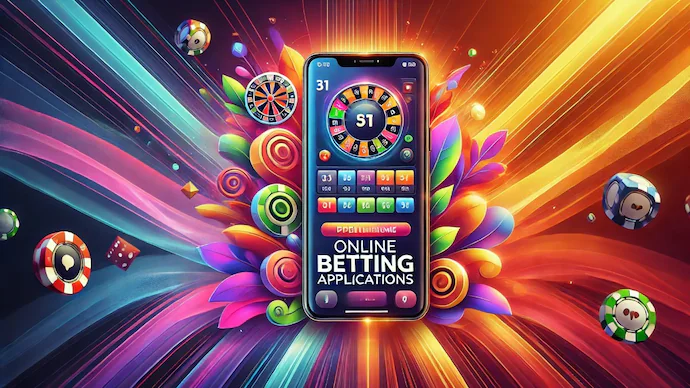Online gambling platforms have undergone significant evolution since their inception in the mid-1990s. From rudimentary websites with basic casino games to sophisticated, immersive platforms offering a wide range of betting options, the industry has seen tremendous growth. This article explores the evolution of online gambling platforms, focusing on their technological advancements, the rise of mobile gaming, legal developments, and the role of cryptocurrencies in the industry.
The Early Days of Online Gambling (1994-2000)
The history of online gambling dates back to 1994, when Antigua and Barbuda passed the Free Trade & Processing Act, allowing companies to apply for licenses to offer internet-based gambling services. At this time, the internet was still in its infancy, and the concept of online gambling was relatively novel. The first online casino, InterCasino, launched in 1996, offering just a few games such as blackjack and roulette.
Back then, the platforms were rudimentary, with simple interfaces and limited functionalities. There were no live dealers, and game graphics were basic. Additionally, internet speeds were much slower, making the overall user experience less engaging than today. Still, the appeal of convenience—being able to gamble from home—helped the industry gain traction.
Another critical milestone came with the development of Microgaming, a software company that played a key role in creating the first fully functional gambling software. This early partnership between software providers and gambling sites laid the foundation for the rapid evolution that would follow.
The Growth of Online Gambling Platforms (2000-2010)
With the dawn of the 21st century, online gambling platforms saw exponential growth. Several key technological and legal changes contributed to this phase of development.
- Technological Advancements:
- By the early 2000s, internet speeds improved drastically, with broadband connections becoming more widespread. This allowed platforms to offer a more seamless and engaging experience. Game developers started focusing on enhanced graphics, smoother gameplay, and the integration of more games like slots, poker, and sports betting.
- Multiplayer options were introduced, enabling users to interact with other players in games like poker and bingo. This social aspect attracted more players who enjoyed the community feel of gambling, even from a distance.
- Legal Developments:
- The early 2000s also saw a proliferation of legal battles surrounding online gambling. Countries like the U.S. imposed restrictions, notably with the passing of the Unlawful Internet Gambling Enforcement Act (UIGEA) in 2006, which made it illegal for financial institutions to process payments from online gambling activities. Despite this, online gambling continued to flourish, particularly in Europe and other parts of the world where regulations were more lenient.
- Security Enhancements:
- One of the concerns in the early days of online gambling was security. To address this, platforms began implementing SSL encryption and other security measures to protect users’ personal and financial data. This development helped build trust in online gambling platforms, attracting more users who were previously hesitant due to security concerns.
The Mobile Revolution and the Rise of Live Dealer Games (2010-2020)
The 2010s marked a pivotal decade for online gambling, as mobile gaming and live dealer games took the industry to the next level.
- Mobile Gambling Platforms:
- The widespread adoption of smartphones and tablets revolutionized the online gambling industry. Companies began optimizing their websites for mobile use, and many launched dedicated apps. This shift allowed users to gamble on the go, leading to a massive increase in player engagement. Games were designed with touch-screen controls, and users could access a full suite of options—everything from slots to poker to sports betting—right from their handheld devices.
- The emergence of HTML5 technology played a significant role in the success of mobile gambling. Unlike earlier Flash-based platforms, HTML5 offered better compatibility across devices and browsers, ensuring a smooth user experience without the need for additional downloads or plugins.

- Live Dealer Games:
- One of the major innovations in this period was the introduction of live dealer games. These games bridged the gap between online and brick-and-mortar casinos, offering a more immersive experience. Players could engage with real dealers via live-streamed games, such as blackjack, roulette, and baccarat, while also interacting with other players through chat features.
- Live dealer games were a game-changer, as they added a level of trust and excitement that automated RNG (Random Number Generator) games could not match. The use of real dealers increased transparency, helping players feel more confident that the games were fair.
The Role of Cryptocurrencies and Blockchain Technology (2020-Present)
In recent years, online gambling platforms have started embracing cryptocurrencies and blockchain technology, leading to a new phase of innovation in the industry.
- Cryptocurrency Integration:
- Cryptocurrencies like Bitcoin, Ethereum, and Litecoin have made significant inroads in the online gambling sector. Many platforms now accept these digital currencies for deposits and withdrawals, offering users several benefits. These include faster transaction times, lower fees, and increased anonymity, which is appealing to users in regions with strict gambling regulations.
- The use of cryptocurrencies also enhances security, as blockchain technology makes it more difficult for malicious actors to tamper with transactions or data. This is particularly important in an industry where trust is paramount.
- Blockchain Casinos:
- A new development in the industry is the emergence of blockchain-based casinos. These platforms are entirely decentralized, meaning they operate without a central authority. Blockchain casinos use smart contracts to automate processes like payouts, ensuring transparency and fairness. This shift towards decentralization is seen as a way to enhance trust and reduce the need for third-party oversight.
- Provably Fair Gaming:
- Another significant advantage of blockchain technology is the concept of provably fair gaming. Using cryptographic algorithms, players can verify the fairness of each bet or game outcome, ensuring that neither the platform nor other players are manipulating the results. This added layer of transparency is reshaping the online gambling landscape by building greater trust between players and platforms.
Regulatory Challenges and Opportunities
As online gambling platforms have evolved, so too have the regulations governing the industry. Different countries have taken varying approaches, with some fully embracing online gambling and others imposing strict restrictions.
- Regulatory Landscape:
- In Europe, countries like the UK, Malta, and Gibraltar have established comprehensive frameworks that regulate online gambling, ensuring that platforms operate fairly and transparently. This has helped legitimize the industry and attract more players who feel confident that they are playing on trustworthy platforms.
- In contrast, other countries, particularly in Asia and the Middle East, maintain strict bans on online gambling. This has led to the rise of offshore platforms that operate in legal grey areas, serving players from regions where gambling is restricted.
- Opportunities for Growth:
- The legalization of online gambling in the U.S. in 2018 marked a significant shift in the global landscape. With states like New Jersey, Pennsylvania, and Michigan leading the charge, the U.S. market has seen rapid growth. This presents massive opportunities for online gambling platforms to expand into new markets and attract a wider user base.
The Future of Online Gambling Platforms
Looking ahead, the evolution of online gambling platforms shows no signs of slowing down. Several trends are poised to shape the future of the industry:
- Virtual Reality (VR) and Augmented Reality (AR):
- Virtual reality and augmented reality technologies are expected to revolutionize the online gambling experience. Imagine stepping into a virtual casino from the comfort of your home, interacting with other players and dealers in a fully immersive environment. VR casinos are already in development, and as the technology improves, we can expect to see more platforms incorporating VR elements.
- Artificial Intelligence (AI):
- AI is another technology set to transform the industry. Online gambling platforms are already using AI to personalize the user experience, offering tailored game recommendations and promotions based on player behavior. Additionally, AI-powered chatbots are improving customer service by providing instant assistance.
- Continued Legalization:
- As more countries recognize the economic benefits of legalizing online gambling, we can expect further expansion of regulated markets. This will create new opportunities for platforms to innovate and offer localized experiences tailored to specific regions.
Conclusion
The evolution of online gambling platforms has been a journey of continuous innovation, driven by advancements in technology, changing legal landscapes, and shifting consumer preferences. From the early days of simple casino games to the immersive, mobile-friendly, and blockchain-powered platforms of today, the industry has come a long way. As we look to the future, technologies like VR, AI, and blockchain are poised to push the boundaries even further, ensuring that online gambling remains a dynamic and exciting space for years to come.




